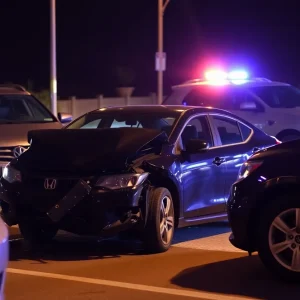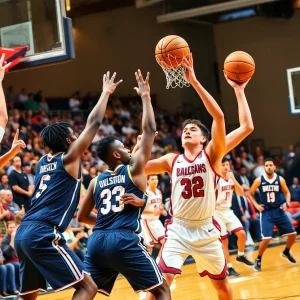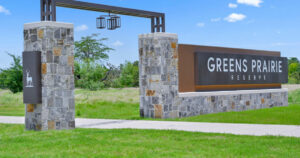News Summary
A recent survey highlights how Texas’s political climate is affecting college-bound students’ choices. A significant number of students are avoiding Texas colleges due to concerns over political affiliations. Young voters are expressing increasing dissatisfaction with both major parties, revealing a complex landscape in higher education and political involvement among younger generations.
Texas College Enrollment Landscape Shifts Due to Political Climate
As the conversation around political affiliations grows more intense, the challenges young people are facing when choosing their college destination seem to reflect broader societal trends. In Texas, it appears that politics is playing a significant role in the college decisions of many students.
The Findings of a Recent Survey
A recent study by the Art & Science Group shed light on this growing concern. It revealed that 28% of college-bound students have crossed Texas colleges off their lists purely due to the state’s political climate and ongoing legal issues. That’s a substantial figure when you consider the vibrant array of educational options available in the state. Interestingly, Texas leads the way with 31% of students citing political reasons for avoiding its colleges, making it the highest percentage in the nation when compared to states like Alabama, California, Florida, and New York.
Political Sensitivities Among Students
What’s fascinating is the stark divide in political sensitivities here. Among students who lean left, a whopping 75% have avoided schools they perceive as too conservative, particularly on issues surrounding abortion and LGBTQ+ rights. On the flip side, conservative students, numbering 66%, are steering clear of institutions they feel are too progressive in these same areas, or too lenient regarding crime. This illustrates just how polarizing the current political landscape has become for young people.
Current Enrollment Numbers in Texas
Despite the survey findings, total college enrollment in Texas remains mostly steady. As of July 2024, 695,702 students were attending two-year public colleges, whereas 535,293 were enrolled in four-year institutions throughout the state. It’s noteworthy that Texas is home to some of the nation’s top universities, such as Rice University, which has recently jumped into the spotlight by arriving at number 9 on Forbes’ list of America’s best colleges. Other notable universities include the University of Texas at Austin ranked 46th, Texas A&M University at 70th, Trinity University at 95th, and Southern Methodist University falling in at 99th.
Young Conservatives Find Their Voice
In discussions taking place on college campuses, young Republican students, especially at Texas A&M, report feeling a notable increase in acceptance and freedom when expressing their conservative viewpoints. This shift suggests a transforming environment in social discussions, where political affiliations are gaining clarity among younger voters.
Understanding Young Voter Trends
Furthermore, voter behavior among younger generations seems to be evolving. Polling data indicates a shift toward conservatism, especially among young men. However, despite these shifts, activists remain wary of young voter turnout rates for the 18-29 demographic, which continue to lag behind older age groups.
The Balancing Act of Political Affiliation
The political landscape for young voters is intricate. Many individuals express dissatisfaction with both major parties, pointing to the possibility of exploring third-party candidates in the run-up to elections. Issues like cancel culture, economic uncertainties, and personal experiences from the COVID-19 pandemic are shaping their perspectives and leading to political shifts among this demographic.
The Future of Engagement
As we look ahead, the pressure surrounding political correctness is palpable. Many young people are concerned about the potential backlash they might face for sharing conservative views. Recognizing this, key influencers and activists within the Republican party are advocating for diligent efforts to engage younger voters actively, aiming to foster a new generation of conservatives who are politically active and vocal in their beliefs.
In closing, the intersection of education and politics is becoming increasingly prominent in Texas. It will be interesting to observe how these trends develop in the coming years and the impact they may have on both higher education and the future landscape of American politics.
Deeper Dive: News & Info About This Topic
HERE Resources
Bryan and College Station Crack Down on DWI Incidents
College Station ISD Increases Staff Compensation amid Budget Concerns
College Station City Council Elections Heat Up
College Station Woman Sentenced to Six Years for DWI
Melissa McIlhaney Wins College Station City Council Election
Exciting Developments in College Station: Texas A&M Implements 12th Man Mobile App and Local Government Approves New Construction Projects
Bright Futures Ahead: Allen Academy’s Innovative College Counseling Program Celebrates 100% Acceptance Rate
College Station City Council Discusses Potential Sale of Northgate Surface Lot Amid Community Concerns
Construction Workflow Software in College Station TX: Reduce Admin Time with Construction ERP
College Station Celebrates Five-Star Recruit Jerome Myles Joining Texas A&M Football Team
Additional Resources
- Houston Chronicle: Texas Colleges and Politics
- The Eagle: Judges Act in Texas
- Express News: Young Republicans in Gen Z
- KBTX: Cannabis Conference in Aggieland
- Houston Chronicle: DNC Gen Z Activist Olivia Juliana
- Wikipedia: Politics of Texas
- Google Search: College Politics Texas
- Google Scholar: Texas College Enrollment
- Encyclopedia Britannica: Texas
- Google News: Texas College Politics







